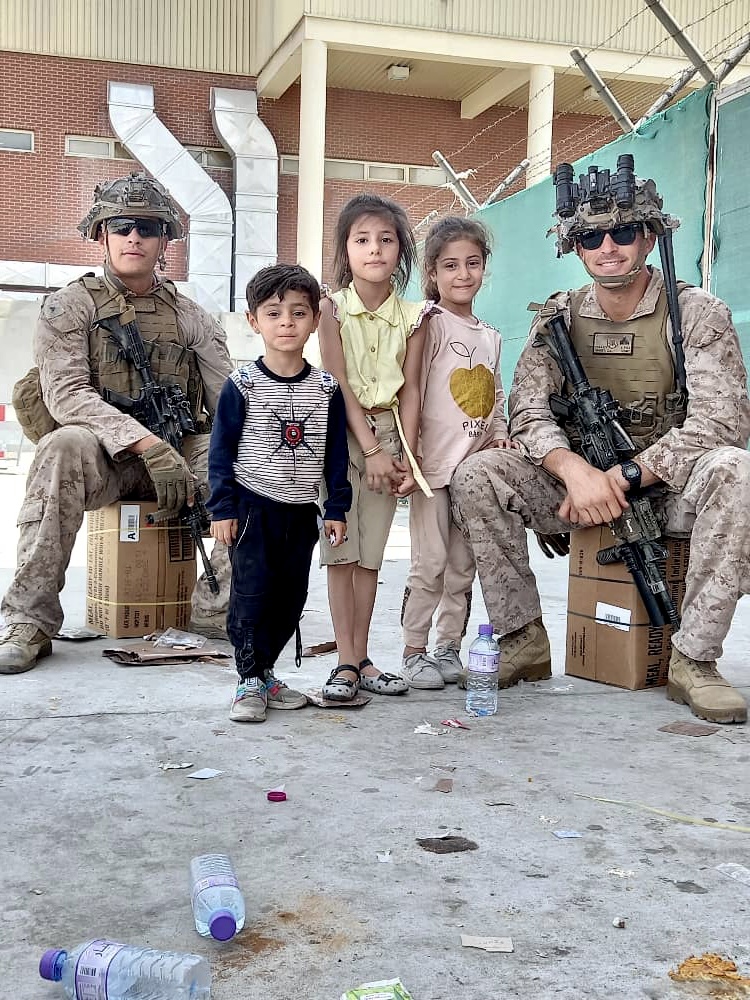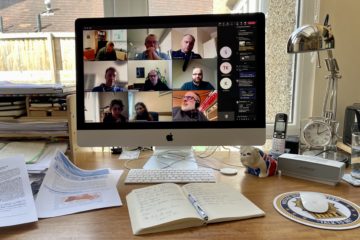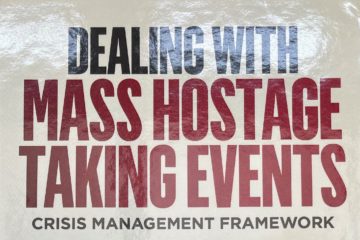Martyrs & Miracles – Escape from Kabul
After 16 years, we have history in Afghanistan, first establishing our mission to bring non-extremist and balanced education to many Afghan children & youths helping them to pull themselves from the previous Taliban regime through learning and enjoy, what many of us would regard as the democratic freedoms of a “Western” world, that some take for granted today. This journey has not been without challenge as in many areas the mere fact that we were teaching girls and employing female teachers put us in direct conflict with the ideology of the Taliban, who were ever present in the communities through their Shadow Government.
In 2014 we saw our Indian Country Director abducted by Taliban as he visited a school south of Herat City where we had successful programmes teaching and employing the families of internally displaced people and returnees. Shockwaves resounded throughout our organisation as we stepped up to deal with this challenge and through formation of a Crisis Management Team and sought expert assistance in responding to this kidnap. Despite the difficulties, we rose to the challenge, gathered & shared intelligence with the authorities and skilfully negotiated with the Taliban not only to ensure the welfare of our Country Director, but also to assist in securing his release after some 264 days in Taliban captivity. As we debriefed him, it was clear that his deep faith had been instrumental in his ability to endure the mental and physical trauma of being held, chained, and often tortured throughout his ordeal. We also gained a deep understanding of the Taliban functionality and capabilities around their ‘fundraising’ activities of kidnap for ransom; at the time our Country Director was one of eleven international hostages held. Little were we to know that this was the ‘dry run’ for what we experienced this year.

You cannot operate in Afghanistan without having a sound approach to safety & security and throughout our time there were many incidents that tested our approach but also to act in solidarity with the local communities that we served and who were embracing the benefits that education and strengthened livelihoods brought to peace. An attempted suicide bombing attack perpetrated by a former student at one school where girls were taught in 2020 only continued to act as salient lesson that we must be constantly alert to such risks within the communities we served. Our approach was to raise awareness through minimum standards for safety & security, regular training and exercising to improve knowledge and understanding. Monitoring intelligence from within the NGO community and through local information we thought we were equipped to anticipate challenges and threats to our operations, so that we could avoid crisis through mitigation measures.
Like many we monitored not only local intelligence updates, but that of the wider global geo-political news around the phased withdrawal of the US & allied troops from Afghanistan and the detail of the Doha Agreement between the US Government and the Taliban that in September 2020 saw the release of over 5000 Taliban prisoners, many convicted of serious crimes back into Afghan Society. In May 2021 we continued to monitor the Taliban activity in the Northern Provinces as they fought the Afghan National Security Forces (ANSF) and at the same time some of the international forces withdrew from the country as part of the phased withdrawal.
Unabated our activities continued across Kabul, Herat, Daikundi and Bamiyan with a refresher of our hibernation, relocation & evacuation contingencies to ensure that staff knew what to do and where to go. In July, connected with our communities, we became increasingly concerned about the continued spread of Taliban attacks not only on infrastructure but also on districts as they began to focus on Provincial Capitals. Our team that had successfully engaged with the Taliban during the captivity of the Country Director were well known in Herat City, became frightened at the advance and spoke up. Establishing a Crisis Management Team (CMT) at strategic level in July was beneficial in documenting daily situation reports, but also gave the Country Director the necessary support and guidance as one of the only two expats in country.
Our mission is to accompany, serve and advocate for refugees and those forcibly displaced in the country and combined with deep spirituality this was focused on the continuation of our activities. To a certain extent the ongoing conflict with the Taliban was dismissed as ‘Afghanistan is Afghanistan’ and a general acceptance that this is how the country was and that our strategic CMT was ‘overreacting’ to the intelligence reports. Having committed to the country and its people it is easy to see that emotional and spiritual attachment to the people that we serve and whom they see as a ray of hope in a country that has been in conflict for decades, if not centuries. That attachment can often cloud our thinking and as such our reactions in how we perceive risk. Combined with the psychological phenomena of denial in the face of real danger we encountered local leadership that refused to accept the truth and who had engaged local staff to write their concerns about the evolving situation to share with the CMT. It came as no surprise that local staff dismissed the Taliban activity as they did not want to upset local leadership for fear of loosing their jobs.
In my role, I could foresee a ‘perfect storm’ forming with a Country Director and expat staff both willing to die with the people that they served, the denial of the facts of the Taliban advance and the determined ability not to follow the direction of the CMT. Always in these situations, despite the stress and pressures if the situation, I stood back to consider how I could negotiate and influence an almost defiant Country Director that was walking blindly into danger. It is our ability to communicate in the right language, listen to understand and negotiate constructively to influence without loss of face to the other party. Pulling on all my experience as a professional negotiator and a man of faith, I negotiated a supportive solution that allowed joint leadership at Country level and accompanied the Country Director literally and in spirit, reminded by the words of Psalm 23 “The Lord is my Shepherd…Even though I walk through the valley of the shadow of death, I will fear no evil, for You are with me; Your rod and Your staff, they comfort me.”
This was tested when our team in Herat became under direct threat from the Taliban and not a risk that was recognised by the local leadership, which was entirely focused on responding to the many people flocking into Kabul in the belief that it would be the last city to fall and hopefully be able to withstand the Taliban onslaught. Overstepping that leadership and facilitating the immediate relocation of staff & families from Herat to Kabul on the last commercial flight was just in the nick of time before our offices were looted as Taliban searched for our staff.
With staff hibernated and relocated across the country, August brought the stark reality of the rapid advance of the Taliban insurgency as Provincial Capitals fell one after the other almost like dominos collapsing until it reached Kabul. Assured that our staff and families were safely hibernated for now we continued at a pace on our evacuation measures, most of which evaporated with the Taliban advance with commercial flights quickly halting owing to the insecurity. Having a minimum of expat staff in country helped, but unfortunately, one expat had gone to Bamiyan and was now hibernated with a loyal family, who were prepared to die to protect him. Any ability to evacuate by air from Bamiyan disappeared as UNHAS relocated all their aircraft into Pakistan to prevent Taliban capture. Various plans were discussed with local people wanting to dress the expat as an Afghan woman and transport him by road to Kabul. If discovered at a Taliban checkpoint, the likely risk would be that of kidnap and probably execution of those who helped him flee. Monitoring intelligence and activity on the routes allowed us to plan and move him at short notice by convoy, negotiating the checkpoints without incident until he was reunited with the Country Director.
Having secured flights and identified core staff to go onto flight manifests, then the real challenge came of securing entry to Hamid Karzai International Airport (HKIA) secured by a Joint Task Force of international troops the airport stood in isolation as the Taliban mounted checkpoints throughout the city to monitor movements of people to the airport. Many of our national staff with their families were able to get to the airport from the safe haven within the city by taxi, but then like hundreds of others desperate to flee they faced crowds of people in the same position. Equipped with their papers, they endured three long days of trying to get through the gates of the airport to get a flight to safety. Occasionally Taliban soldiers would enter the crowds, beat the men & women, shoot into the air inadvertently causing falling bullets to injure the crowds, traumatising the young children huddled with their parents wanting to leave with the guarding military ever conscious of the prospect of an attack against the airport not only by Taliban but also by the extremist ISIS-K. We accompanied our staff 24/7 providing reassurance, giving guidance on psychological first aid so that they could help their children and walking them through what we were doing in finding solutions keeping them as a cohesive team and rolling through the emotional highs and lows of trying to get them out.
Eventually on the 23rd of August, through our diplomatic work at the highest levels within the Church we were able to influence and establish a military operation that would see our local staff and families extracted by the US Marines at dawn by bus from the streets of Kabul to eventually enter the security of HKIA after negotiations by the Marines with the Taliban checkpoints. Our expats were moving at a similar pace after a similar ordeal over the previous days as the Indian Authorities attempted to get them inside HKIA for evacuation, but just as we thought we were making progress, a heart stopping moment, when the Taliban held 150 Indians captive outside HKIA for a number of hours, having lunch and taking selfies, in possibly a show of strength to demonstrate that they indeed ‘hold all the cards’ and were in complete control. Thankfully we also got them inside the airport and on a flight out of Afghanistan bound for India, while our local staff boarded a US military flight to Abu Dhabi, in all we had got 30 people out, but there was more to do.
As time moved on the option of extraction by vehicle became more problematic and staff relayed that getting inside the gates at HKIA was like winning the lottery in terms of chance. Some private companies were offering a minibus to take people to the airport from within Kabul for evacuation at the exorbitant cost of $20,000 with no guarantee of entry inside to get that all important flight. Having established a successful tactical method, we continued our diplomatic efforts with our focus on two groups of 40 to get inside the airport. A plan was hatched of a tactical ‘snatch’ from the crowds by USMC and the Italian Military, but despite our best efforts with our team easily identifiable with the umbrella and red skip cap, everything conspired against success on the 25th of August. Staff were deflated, exhausted, petrified but resilient in the face of what we were trying to do. Early morning the following day, saw 65 of our staff snatched from the crowd by the military and taken inside the airport to safety to wait on Italian military flights. Just when we got them inside the ISIS-K suicide bombing attack near Abbey Gate occurred killing many locals but also many of the brave USMC Marines that had courageously helped our people get inside hours earlier.
My heart sank, feeling almost drunk with exhaustion through sleep deprivation the relief of getting 95 staff & families to safety and the tragic death of those caught in the ISIS-K attack brought floods of tears as a hugged my family, grateful for what I had. Managing the stress in such situations when you’re working from home is so important, so I often headed to the hills with a flask of tea to sit in the Scottish weather, think through issues, appreciate nature and be thankful that I was born in a country that has not endured the same conflict as Afghanistan.
Those evacuated were embraced by the support of our missions in Italy and the USA where they are gradually adjusting to a new life as they proceed through the asylum process with both anxiety at what the future might hold for them and for those left behind, but also a huge helping of hope.
The global window and willingness to take Afghan refugees has dwindled and become more difficult as the world now waits and watches to see how the Taliban will govern and develop the Islamic Emirate of Afghanistan. The humanitarian crisis is already there with food shortages, insecurity, fear, and many of the rights enjoyed over the last twenty years stripped away.
As I continue to work on this to help keep safe our staff that remain in country, I reflect back on the height of the crisis and know that many lessons will be learned. Dealing with staff who wish to martyr themselves will always be a challenge, but it is how we communicate, influence, and persuade them to do otherwise that counts. Understanding tactical military operations and crowd dynamics to lead frightened staff through what is going to happen is essential in them holding their nerve under immense pressure. Negotiating through diplomatic efforts to engage influence on significant authority is one that has identified a relationship and collaboration that needs to grow and strengthen. Finally, our faith, I have no doubt, irrespective of your beliefs, that having faith has helped me both personally & professionally help in response to the Afghan Crisis. Miracles do happen…


